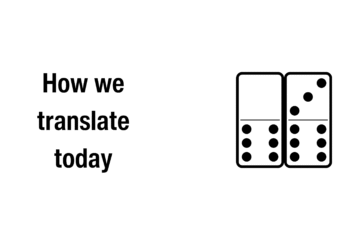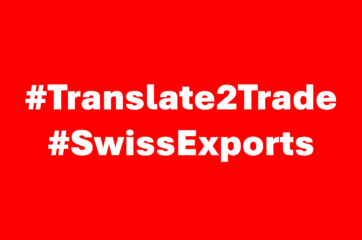A practical guide to translating sustainability reports

Sustainability reports have become essential for companies committed to transparency and responsible business. These reports document how you manage environmental, social, and governance (ESG) impact, measure progress, and communicate your corporate social responsibility (CSR) initiatives.
When your company operates in a diverse, multilingual market such as Switzerland, translating sustainability reports is crucial. Each translation must reflect the same precision, tone, and intent as the original. Inconsistent or low-quality translations can distort your message and weaken the trust you’ve built.
What does corporate social responsibility mean?
Corporate social responsibility extends beyond compliance or philanthropy. It involves embedding sustainable practices in every aspect of operations, reducing emissions, supporting communities, and maintaining ethical supply chains.
Sustainability reports make these efforts visible. The reports demonstrate to investors, partners, and customers that your company sets sustainability goals and communicates real progress. Professional translation amplifies your CSR message, helping it resonate clearly in every language and region.
Why translating sustainability reports matters
In a multilingual environment, not everyone reads your primary language. Translating sustainability reports ensures your environmental and social commitments are understood in German, French, Italian, and beyond. As such, stakeholders don’t have to rely on automatic translations, which could lead to inaccuracies.
A consistent translation strengthens brand integrity and guarantees that your data, targets, and values are aligned throughout markets. It also supports regulatory compliance, as many frameworks require sustainability information to be available in all relevant languages.
Stakeholder mapping and language selection when translating sustainability reports
You should have a strategy when translating sustainability reports. Begin by mapping your stakeholders: investors, employees, local regulators, partner organisations, and communities. Which languages do they speak? Where are they located? This strategy helps you prioritise translations and allocate your resources effectively.
For example, a Swiss manufacturer with global operations may need an English version, in addition to German, French, and Italian, to cater to international investors. Meanwhile, an SME operating mainly in Switzerland might prioritise German first.
By tailoring your language strategy to your stakeholders, you enhance engagement, trust, and the overall impact of your sustainability reports.
How professional translation brings clarity, consistency, and collaboration
Translating sustainability reports professionally requires both subject-matter expertise and close collaboration. Your translation partner should work with your internal teams to understand your goals, terminology, and values from the start. Skilled translators in sustainability and CSR apply this knowledge to deliver accurate, consistent content that maintains uniform terminology across languages.
Each version is carefully edited and proofread by native speakers, ensuring it reads naturally, reflects your corporate tone, and connects meaningfully with every target audience. This blend of precision, collaboration, and cultural awareness keeps your sustainability message clear and credible worldwide.
Regulatory frameworks and accuracy
Global standards such as the Global Reporting Initiative (GRI), the European Sustainability Reporting Standards (ESRS), and the United Nations Sustainable Development Goals (SDGs) emphasise transparency and accessibility.
As Switzerland’s need to align with European standards increases, companies must now provide transparent, multilingual reports that withstand regulatory scrutiny.
Accurate, context-aware translation supports compliance by preserving factual integrity and ethical clarity across every version of your sustainability reports. Even a single mistranslated term or number can compromise credibility and create legal or reputational risks.
For instance, translating “carbon neutral” incorrectly as “net zero” could misrepresent your achievements under ESG frameworks, highlighting the importance of subject-matter expertise.
Assurance, transparency, and guarding against greenwashing
Stakeholders increasingly expect not just a translated sustainability report, but one that has credible third-party assurance. That means an auditor or verifier reviews your data and confirms it meets relevant standards. The translation must reflect that assurance without introducing ambiguity.
If a translation misrepresents achievements or alters sustainability metrics, it risks accusations of greenwashing. Faithful, well-reviewed translations safeguard your reputation by preserving the accuracy of verified claims and maintaining clarity throughout the report.
A transparent report is honest about its challenges, clearly tracks progress, and explains how results are achieved. Each translated document should communicate that same openness and accountability.
Best practices for translating sustainability reports
To get the most value when translating sustainability reports, keep these best practices in mind:
- Use clear, straightforward, and inclusive language without overusing technical terms to ensure the report’s readability and accessibility.
- Provide your translation partner with the file in an editable format (e.g. InDesign) to avoid losing relevant data in conversion.
- Provide your translation partner with a glossary and previous reports for reference.
- Plan translation timelines early to align the publication dates of multilingual publications.
Applying these practices leads to a smoother translation process, which supports the integrity of your sustainability reports and strengthens stakeholder confidence in the translated content.
How SwissGlobal supports your sustainability reports
We specialise in translating sustainability reports with precision and care. Our translators possess in-depth expertise in sustainability, ESG, and corporate communication, enabling them to convey the same authority and impact as your original report in every language.
To strengthen clarity and consistency across your reports, we provide glossary creation, terminology management, and tailored style guides that align key terms and tone throughout all translations. We also offer DeepL glossary integration for clients using machine translation workflows, linking the efficiency of AI with the precision of human expertise.
We combine linguistic excellence with rigorous quality management and data security. Our ISO 9001, ISO 17100, ISO 18587, and ISO 27001 certifications demonstrate our commitment to quality, accuracy, and confidentiality. Our secure, Swiss-based infrastructure ensures that your sensitive information remains protected at every stage.
With SwissGlobal, your sustainability reports are managed by professionals who combine technical precision, cultural understanding, and deep sustainability insight.
Contact us today to share your sustainability report clearly and credibly to multiple target audiences.
-
CSR
ESG
sustainability reports
translating sustainability reports
translation


